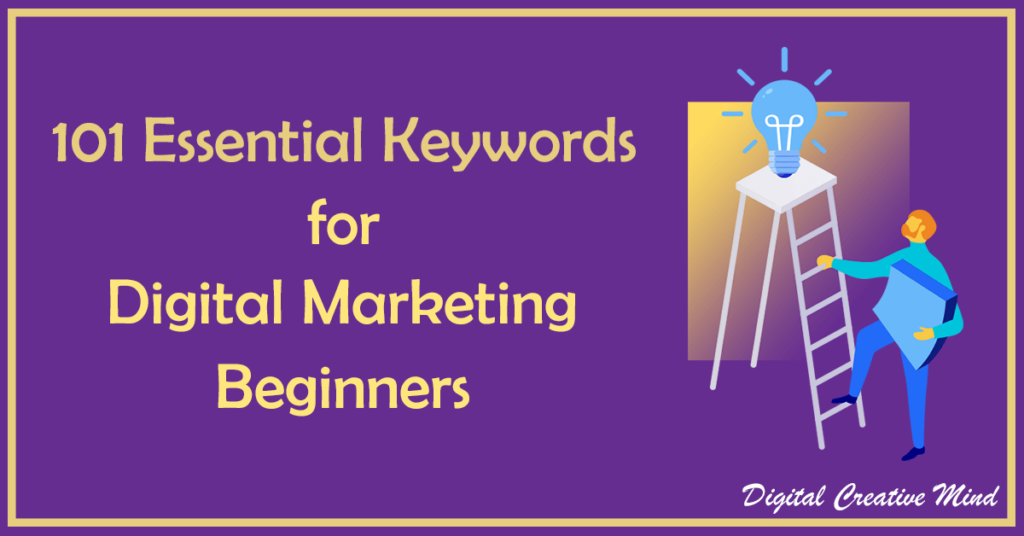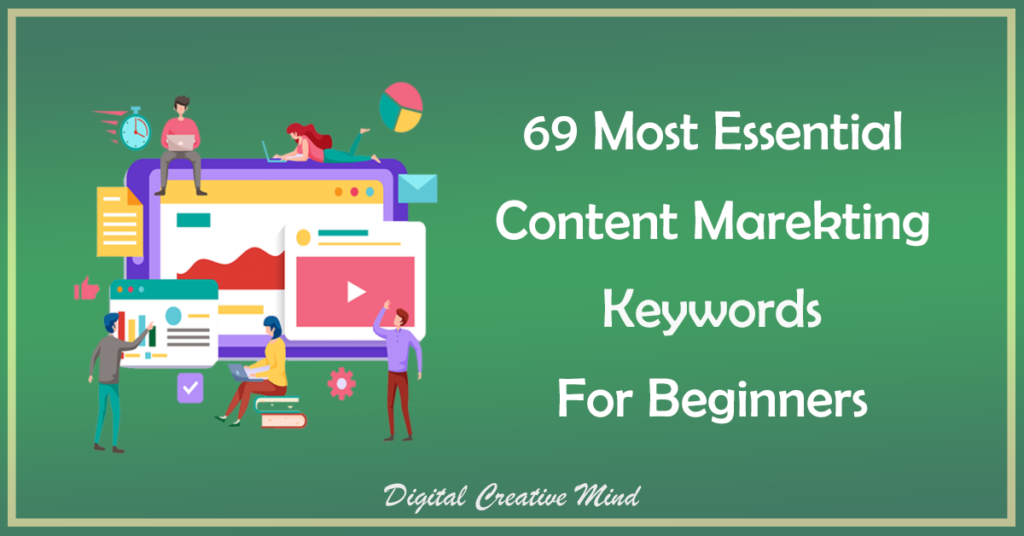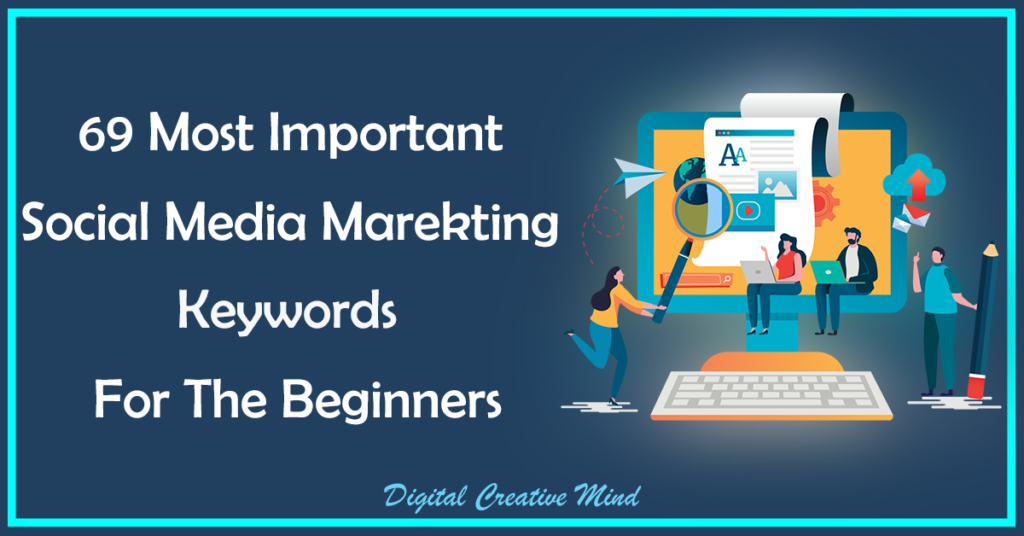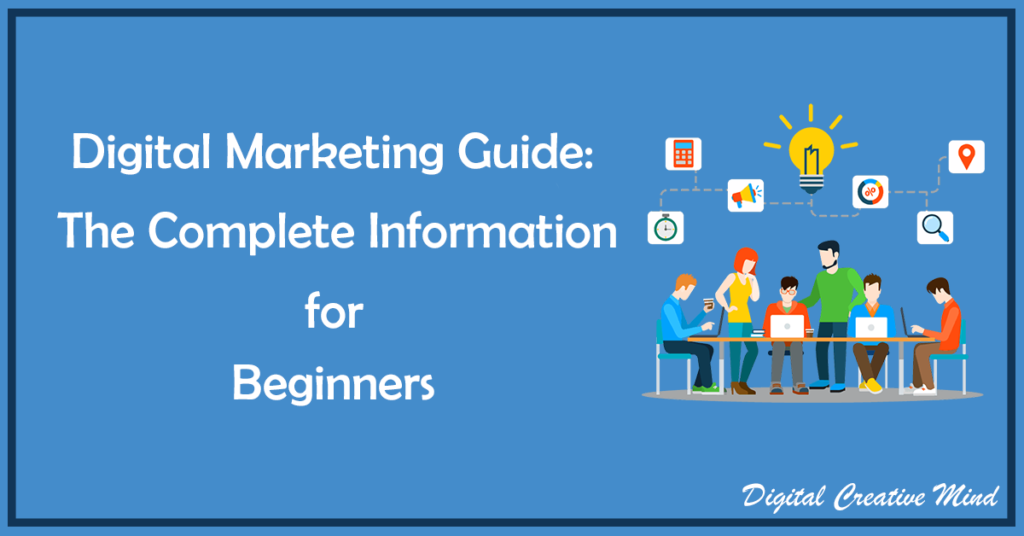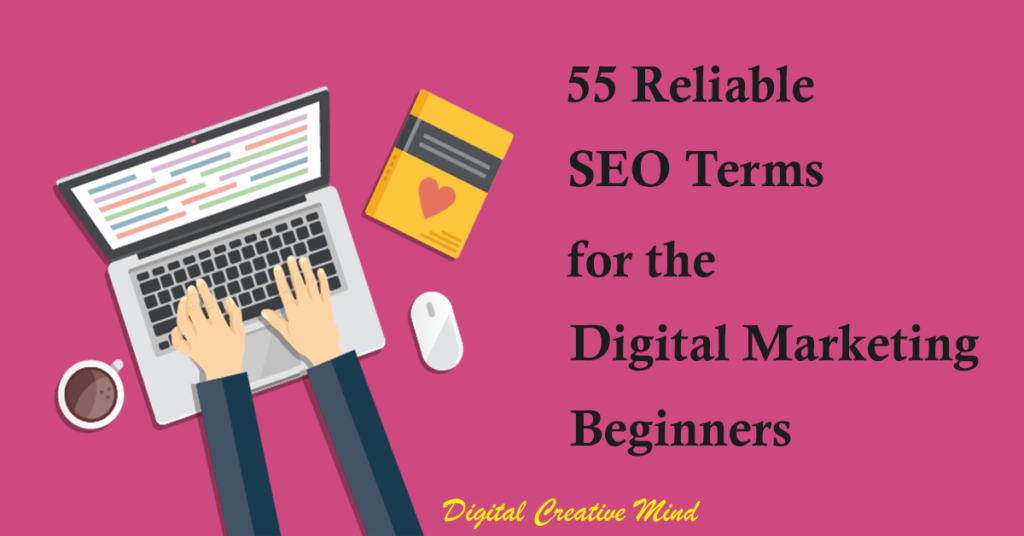Digital Marketing is a vast topic that covers multiple sub-topics and keywords like Marketing, Search Engine Optimization, Social Media Marketing, Organic Marketing, Paid Marketing, Copywriting, Email Marketing, Influencer Marketing, Inbound Marketing, Growth Hacking, and more.
Suggested Readings For You:
- 10 Best Social Media Management Tools [With FREE Plans]
- What Is Affiliate Marketing – A FREE Virtual Event [For Beginners]
It is never easy to learn all the aspects and everything about Digital Marketing at once. Digital Marketing includes multiple and dynamic things. It covers different aspects of Marketing and Technology. You need to devote time and effort to learn everything about Digital Marketing.
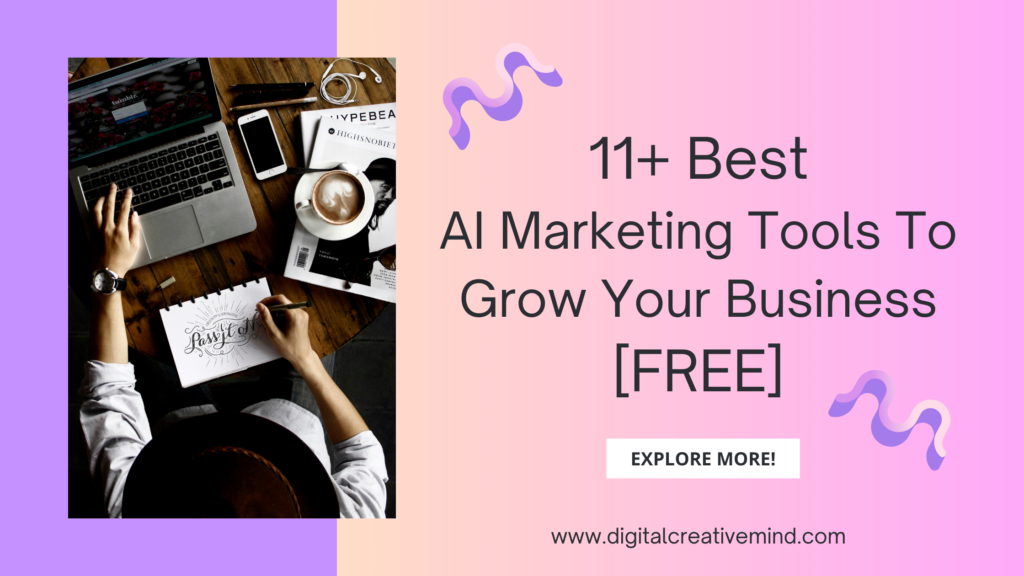
If you want to start learning Digital Marketing, this is the right place to start. Here, you can see the 101 most important Digital Marketing keywords or terms that you should know as a Digital Marketing beginner.
These Digital Marketing keywords will help you to develop a basic understanding of different parts and techniques of Digital Marketing.
A basic understanding of these terms will help you to be ready to learn the in-depth concepts of the following topics, especially Digital Marketing.
These are the 101 Most Essential Keywords that every Digital Marketing Beginner should know:
Marketing: Marketing is the process of satisfying the needs and wants of the customer with a solution that helps them to solve their problem. It is about creating and sharing the value with all the connected parties with business – partners, suppliers, employees, and customers.
Digital Marketing: Digital Marketing is a part of marketing that works with the help of the internet and other digital methods of marketing like search engine marketing and social media marketing.
It helps business to promote their products and services on digital platforms like a website and social media. Digital Marketing can be divided into two parts Search and Social Marketing.
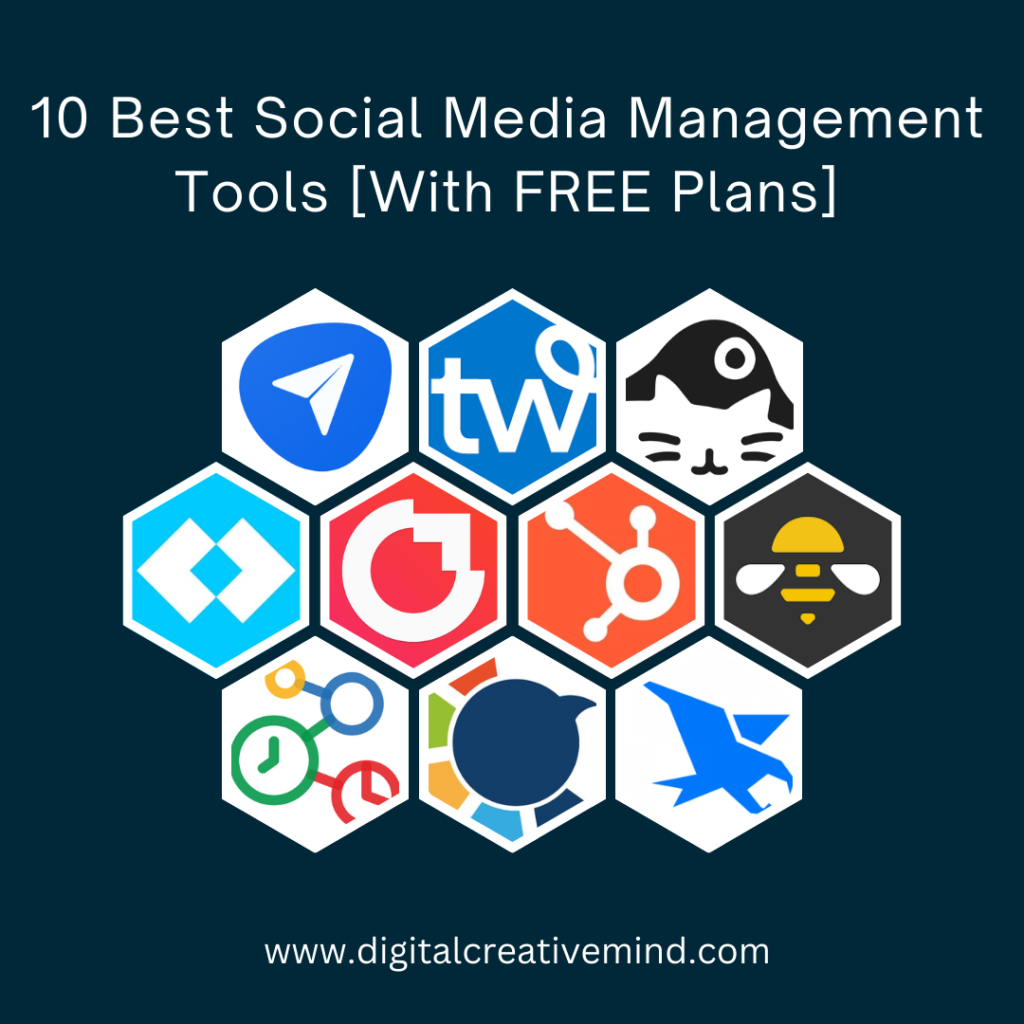
Organic Marketing: Organic Marketing means attracting your potential customers to your business with natural sources which excludes paid methods of marketing. It helps you to attract free traffic to your website. The best known Organic Marketing method is SEO.
Paid Marketing: Paid Marketing is a form of advertising in which the advertiser pays a specific amount of money to advertise. Paid Marketing facilitates advertisers to target the audience based on their interests and intents. The best known Paid Marketing methods are PPC Advertising and paid social media marketing.
Lead Generation: Lead Generation is the process of identifying the potential customers of a business and collecting the details about the potential customers that help a business to grow and attract more customers to its products and services. Lead means the potential customer of the business.
Personal Branding: Personal Branding means the branding and promotion of personals using multiple methods and tools like social media, websites, and specific work achievements.
It promotes the unique skills, abilities, and work of individuals that differentiate them from others. Personal Branding is all about your own branding and promotion on the internet and social media.
SEM: Search Engine Marketing means the use of a search engine for the marketing and promotion of your business. Search Engine Marketing is a combination of organic and paid marketing strategies.
The basic purpose of SEM is to attract more traffic to your website. It could be organic with the help of SEO or paid with the help of PPC.
Pay-Per-Click: PPC is a paid marketing method that you can use to achieve different objectives or goals like lead generation, sales, and online brand promotion.
The most common PPC ads are Search Ads and Display Ads. Search Ads appeared on the search results for the specific keywords when looking for keywords relevant to your ads.
While Display Ads appeared on other websites with the relevant content for your display ads.
Google Ads: Google Ads is a paid marketing platform developed by Google. It helps users to advertise on the search engine in different forms of ads – Search Ads, Display Ads, Video Ads, and Shopping Ads.
Google Ads facilitates benefits like targeting the specific target audience, ad scheduling, customer demographics, and more.
Display Ads: Display Ads are those ads that show advertisements with visuals, images, videos, and graphics. It helps the users to attract more customers through search engine results, social media, and websites.
Suggested Reading for You:
- Everything You Need to Know About Blogging for Beginners
- Money Blogging: How To Make Money With Blogging [For Beginners]
- Sales Funnel Guide: Create a Sales Funnel to Boost Your Sales
- The Ultimate Guide to Affiliate Marketing [Learn Everything for FREE]
- Passive Income Guide: Get Ideas to Earn Smart Passive Income
- Online Money Guide: How to Make Money Online [For Beginners]
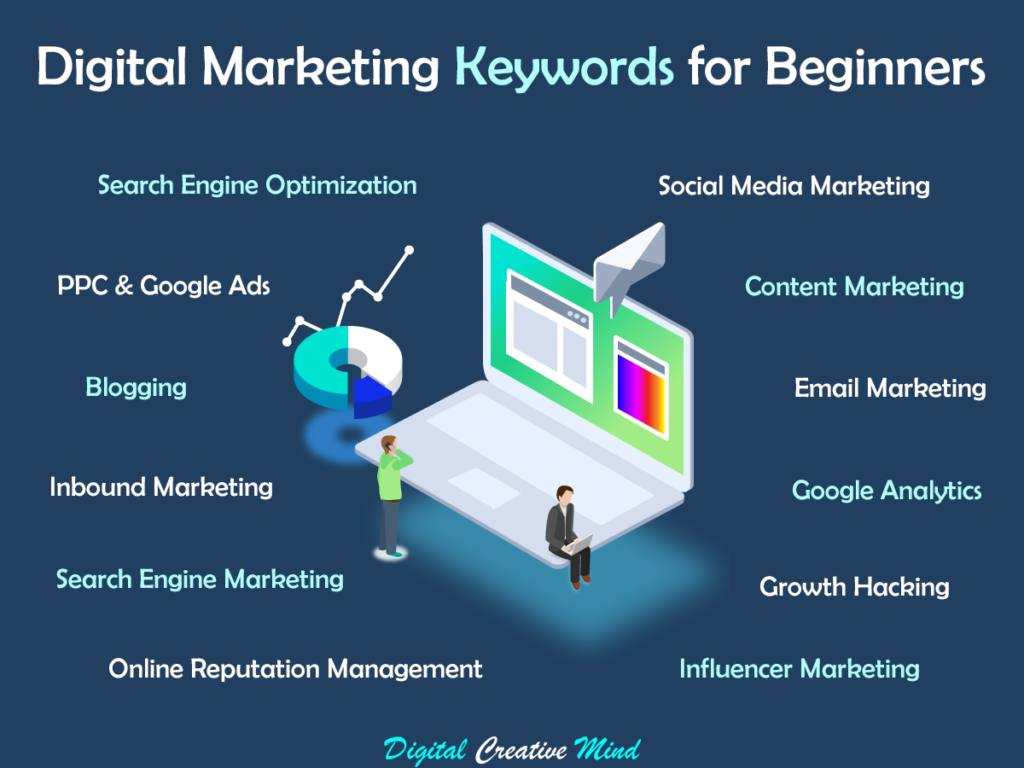
Search Ads: Search Ads are those ads that appear in the top search engine results. It works on the specific keywords used by the customers for a search query.
Search Ads helps advertisers to reach an in-market audience that might be interested in the ad because they used the specific keyword relevant for your product or services.
Shopping Ads: Shopping Ads are those ads that show clear and detailed information about the products that are advertised. The information includes the product price, image, and seller name.
Shopping Ads attract the already interested audience to your ads because they are searching for products like yours.
Video Ads: Video Ads are those ads that appear during, within, or at the ending of a video on social media or video search engines like YouTube. It could be an ad of 10 seconds or 30 seconds. Video ads are majorly used on platforms like YouTube and Social Media platforms – Facebook and Instagram.
Impression: Impression is a term used in Digital Marketing to describe an action in which the advertisement is viewed by a customer. Whenever an advertisement is viewed by a customer, it is considered as an impression.
CTR: Click-Through Rate is the ratio between the users who click on the link to the number of users who viewed the page on which the link is available. It helps in measuring the success of a website, and an online advertising campaign.
CPC: Cost per Click is the price or cost advertisers pay for each click in the Pay-per-Click marketing campaign. It is the amount that advertisers pay for every click by the customers.
CPM: Cost per Mile is the price or cost advertisers pay for each one thousand views on the display ad campaign. It measures the cost based on per thousand views or impressions on the marketing campaign.
CPA: Cost per Acquisition is the price or cost advertisers pay for each acquisition of a new customer from the marketing campaign. The acquisition of a new customer means getting a new customer who is willing to pay for your product and service.
Remarketing: Remarketing means connecting to the people who previously visited your website, to promote your product and services. It is a useful technique to increase your brand awareness and brand recall among your audience.
Negative Keywords: Negative Keywords are those keywords that prevent your online marketing campaign from displaying to the people who use these keywords in their search query.
ROAS: Return on Ad Spend is a type of bidding which allows you to target your returns from the ad on which you spend money. It helps you to get more conversions and to earn more revenue with your ads.
Conversion: Conversion is a term used to describe an action by your audience on your website or ad campaign that you have defined as your goal or objective. The goal could be an impression, purchase, or a call to action.
Conversion Rate: Conversion Rate is the ratio between the numbers of conversions to the total number of visitors on your website or ad campaign.
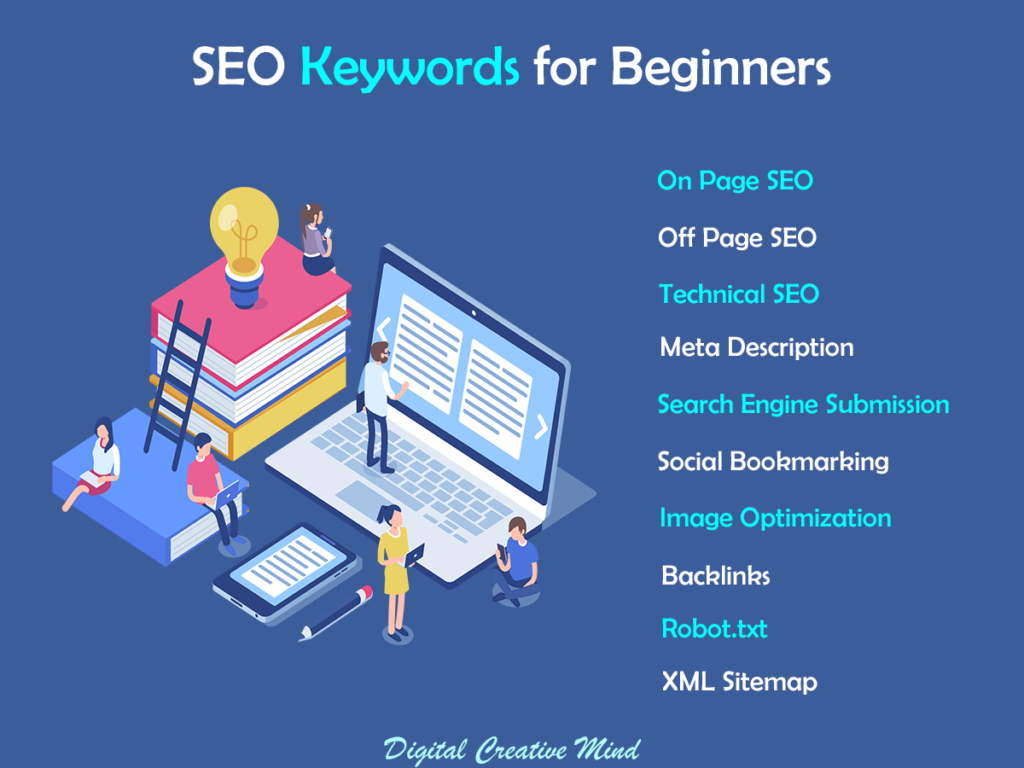
ROI: Return on Investment is a term used to describe the value of returns in the form of revenue and profit from the online marketing campaigns on which the advertiser spends a specific amount of money.
SEO: SEO (Search Engine Optimization) means the optimization of your website with keywords, content, and URLs, which helps your website to rank higher in the search engine results for specific keywords.
SEO helps you to get a higher rank in the search engine and more brand visibility in the search results. It also helps you to attract more organic traffic to your website with minimal cost.
On-Page SEO: On-Page SEO means optimizing the website from internal factors like the content of the website. On-page optimization includes keyword research, content creation, and keyword optimization.
Off-Page SEO: Off-Page SEO means optimizing the website from external factors like external links and building relationships (link building) with other websites through creative content. Off-page optimization works outside the website like working with other websites to create backlinks.
Technical SEO: Technical SEO means optimizing the backend of the website for a better user experience on your website. The major factors of Technical SEO are site speed, mobile-friendly website, security, and site structure.
Organic Traffic: Organic Traffic is the natural traffic that comes to your website naturally from the search engine. It does not include paid traffic. The major source of organic traffic is the higher ranking of your website on the search engine result pages with the help of WordPress SEO.
Organic Search Ranking: Organic Search Ranking means the ranking of your website in the search engine result pages with the organic or non-paid Digital Marketing efforts, especially SEO.
HTML: HyperText Markup Language is the basic component of website building. The basic understanding of HTML is very useful for SEO because it helps you to develop a better understanding of the different types of tags used in SEO.
Title Tag: A title tag is a tag that is used to define the title of a webpage. It appears on the top of the webpage and also appears in the search engine results as the title of the webpage. It is important because it helps website visitors to know what the webpage is all about.
Meta Tags: Meta Tags are the basic tags that describe the keywords, content, and other information in the form of HTML. It helps to create meta keywords and meta descriptions.
Meta Keywords: Meta Keywords are the keywords created with meta tags in the HTML source code. It helps in defining the meta description and content of a website to the search engines.
Meta Description: Meta Description is the short description of a webpage in the form of an HTML attribute. It appears like a snippet in the search engine that shows a small summary of the webpage.
H-Tags: H Tags are the header tags that are used to change the size of different headings on a webpage. There are 6 “H-Tags” which are H1, H2, H3, H4, H5, and H6. H1 is the largest and H6 is the smallest.
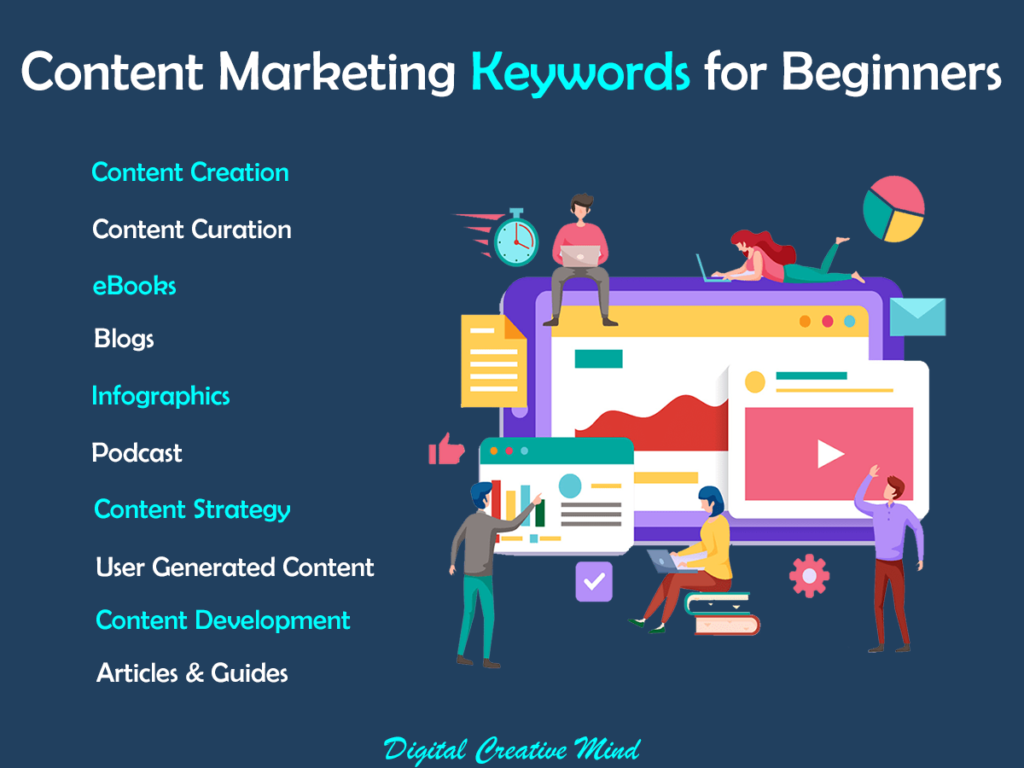
Anchor Text: Anchor Text is a word or a phrase that is visible and connected to another webpage or website in the form of a hyperlink, on an existing webpage.
Dofollow links: Dofollow link is a link that can let the search engine crawlers crawl it which means it allows the search engine bots to follow the links. It helps to get more backlinks and better search ranking.
Nofollow links: Nofollow link is a link that is unable to let the search engine crawlers crawl the link. It does not help in getting a better search ranking.
Internal links: Internal links are the links on a webpage or a website to another webpage of the same website. It helps in the navigation of the website.
External links: External links are the links on a webpage or a website to another website. If your website has a link in your content from another website, it is called an external link.
Backlinks: Backlinks are the links from one website to another. It is different from external links because it is a link to your own website that is hyperlinked on some other website.
Domain Authority: Domain Authority means the importance and relevancy of a website for a specific topic. It has a major impact on the ranking of a website. The higher Domain Authority indicates the potential of the higher ranking of a website.
Social Bookmarking: Social Bookmarking is the process of bookmarking or creating a link to one of your webpage on any social bookmarking or social sharing website to bookmark your content.
It will help you to attract more traffic by sharing relevant and useful content for your target audience. People directly come to your website when they find your content useful for themselves.
Robots.txt: Robot.txt is a file that tells the search engine which pages and files do not crawl on the website. It is a part of the Robot Exclusion Protocol.
Sitemap: Sitemap is a term to describe a file that provides information about the content – pages, files, and videos, on your website. It helps the search engine crawlers to get a roadmap of all the pages on your website.
RSS Feed: RSS Feed is a form of web feed that helps your website to share the latest information about your website and content updates with the users and applications. It is also called Rich Site Summary.
Keyword: Keyword is a term used in Digital Marketing to describe a character or a short phrase that has meaning and defines the content on your website.
Long Tail Keywords: Long Tail Keywords are phrase keywords with more than one character in them and have a specific meaning for the search query. Long Tail Keywords are effective for SEO because they are more specific in nature as compared to normal keywords.
Keyword Research: Keyword Research is the process of finding and searching the keywords and terms used by people for any specific topic. The major Keyword Research tools are Google Keyword Planner, Semrush, and Google Trends.
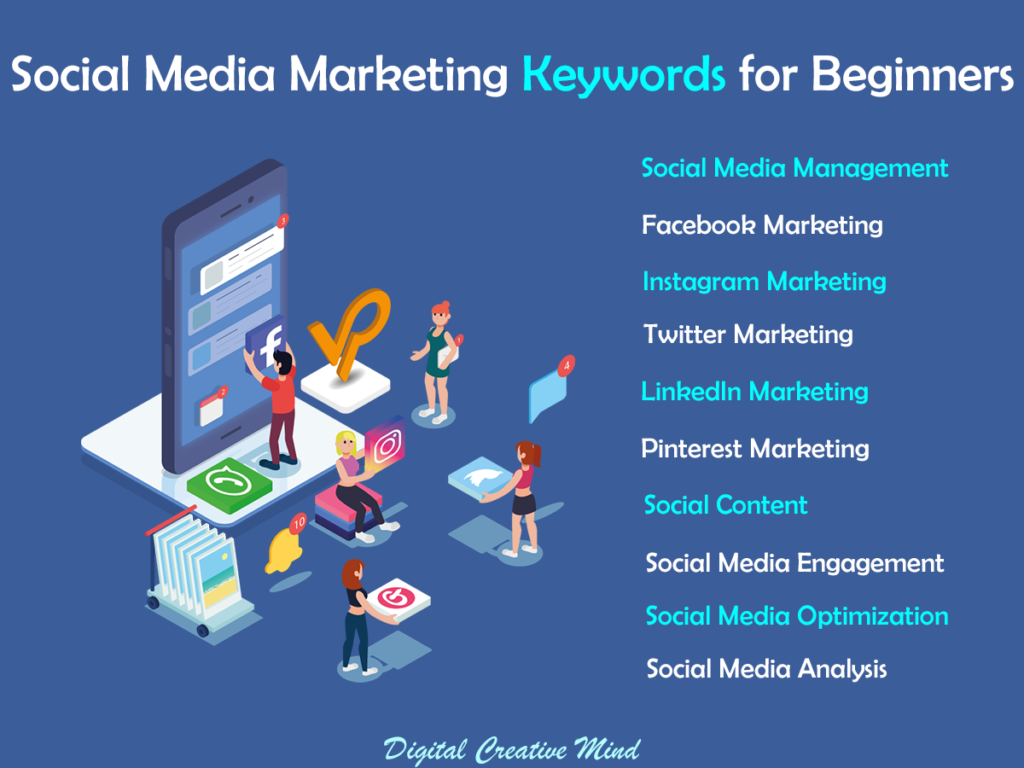
Keyword Research Tools: Keyword Research Tools are the tools developed by different organizations to provide the service of automatic finding and searching for keywords based on the requirements of the users.
Keyword Difficulty: Keyword Difficulty is a metric that shows the difficulty in ranking for a specific keyword. The higher Keyword Difficulty indicates that ranking for the keyword is very difficult.
LSI Keywords: LSI (Latent Semantic Indexing) Keywords are the related keywords that help the search engine crawlers to better understand the content and keywords of a website. These keywords have a similar meaning or related meaning to any keyword.
Link Building: Link Building is the process of creating more backlinks for your website with other websites. The higher number of backlinks helps the website to get a higher ranking in the search engine results, however, the backlinks should be from well-reputed websites.
SERP: Search Engine Result Pages is a term used to describe the pages and results that appeared on search results of a search engine.
Google Keyword Planner: Goole Keyword Planner is a free keyword research tool provided by Google Ads. It helps you to discover new keywords and terms based on the search terms in the search engine.
Google Trends: Google Trends is a free tool to analyze the top searches in the Google search based on different factors like regions, countries, and languages. It provides information in the form of graphs for better visualization of the data.
Google Bot: Google bot is a term to describe the search engine bots of Google which is also known as web crawlers. It collects the information and data from the web and internet to prepare a searchable index for the Google search engine.
Crawling: Crawling is the process of finding and indexing new information and data from the web and the internet, done by the web crawlers.
HTTP: HTTP (Hypertext Transfer Protocol) is a protocol used by the World Wide Web for connection and network. It helps in communication between web browsers and web services.
HTTPS: HTTPS (Hypertext Transfer Protocol Secure) is a term to describe secured communication on the computer network and the internet. The only difference between HTTP and HTTPS is that HTTPS is secured communication, while HTTP is not.
IP Address: An IP Address (Internet Protocol Address) is a term to describe a numerical value given to every device connected to a computer network with Internet Protocol for communication.
Google Search Console: Google Search Console is a free Google platform that provides free tools and reports to help you to measure the performance of your website and organic search traffic on your website.
Competitive Analysis (SEO): Competitive Analysis is a term used in Digital Marketing and SEO to describe the analysis of your website by comparing the performance of your website and the website of different competitors.
The factors for competitive analysis are the number of keywords and backlinks.
Traffic Analysis: Traffic Analysis is a term used to describe the analysis of different factors and parameter that helps your website to attract organic traffic from the search engine.
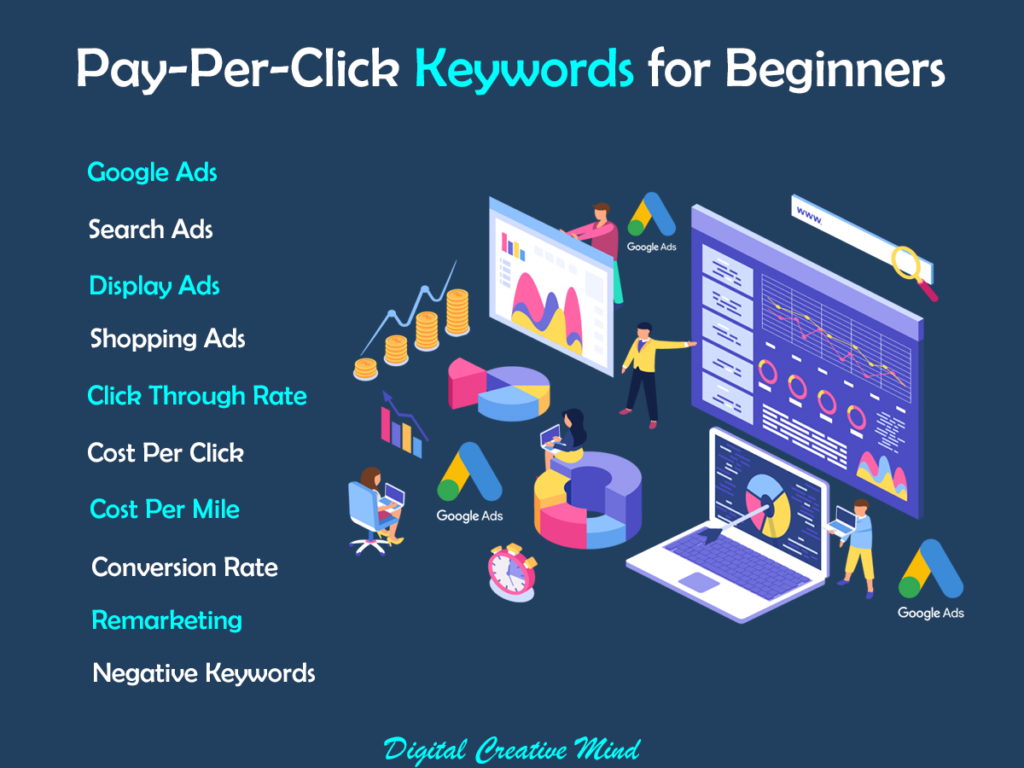
A/B Testing: A/B Testing is the process of experimenting with two or more variants of a webpage to test them. It is conducted by showing the variants to users.
Google Analytics: Google Analytics is a free analytics tool offered by Google. It helps you to understand your website better. Google Analytics provides all the data related to your website that can help you to make better marketing and SEO strategy for your website.
Landing Page: Landing Page is a term used in Digital Marketing to describe the webpage created for the marketing campaigns, where the users and visitors arrive after clicking on the link of ad, post, or any other form of content.
Google My Business: Google My Business is a tool used to manage the profile of businesses in the Google search engine and Google maps. It includes information about the business – business name, location, timing, and customer reviews.
Social Media Marketing: Social Media Marketing means the use of Social Media platforms like Facebook, Twitter, Instagram, LinkedIn, and Pinterest, to advertise and promote your business, products, and services.
Social Media is the most important platform to promote your business because Social Media provides a wider reach to your audience.
Facebook Marketing: Facebook Marketing means the use of Facebook for the marketing and promotion of your business, product, and services.
In Facebook Marketing, you use a Facebook page as a platform to connect with your audience and to share useful information with your audience. You can also run paid ads on Facebook to reach your audience.
Twitter Marketing: Twitter Marketing means the use of Twitter for the marketing and promotion of your business. Twitter is the best place to develop your brand authority in your industry by sharing your thought and creative content with the audience. You can also run paid ads on Twitter to reach a larger audience.
Instagram Marketing: Instagram Marketing means the use of Instagram for the marketing and promotion of your business. You can use Instagram to reach your audience with your content in the form of images and graphics. You can also run paid ads on Instagram to reach a larger audience.
LinkedIn Marketing: LinkedIn Marketing means the use of LinkedIn for the marketing and promotion of your business. LinkedIn is the best platform to promote your brand for B2B marketing because of the professional audience of LinkedIn.
Pinterest Marketing: Pinterest Marketing means the use of Pinterest for the marketing and promotion of your business. Pinterest is an image-sharing platform, where you can reach and connect to your audience with your content in the form of images and visuals.
Video Marketing: Video Marketing means the use of video content to promote your business on different digital and social media platforms like Facebook, Instagram, Twitter, LinkedIn, and YouTube.
Video Marketing is very effective because people like to view a short video instead of reading a blog to get any information.
Content Marketing: Content Marketing means creating and sharing useful content with your target audience to promote your business. The major types of content are blogs, Articles, Infographics, e-books, and Videos. Content is a vital component of Digital Marketing and especially – Social Media Marketing.
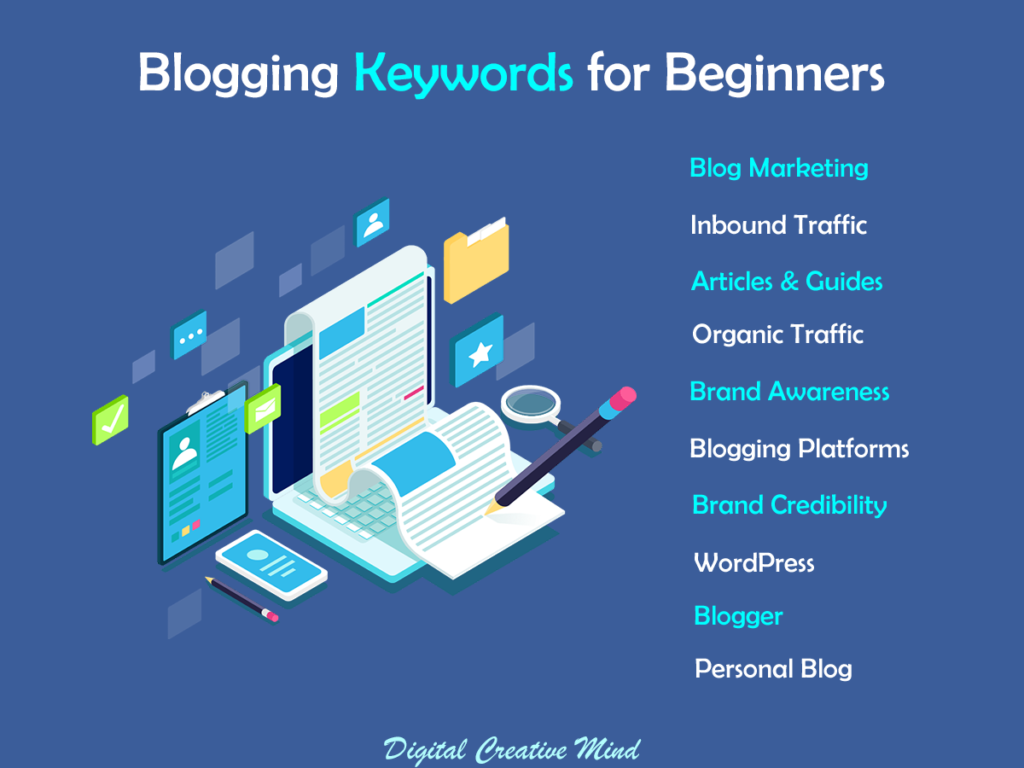
Content Curation: Content Curation is a term used in content marketing to describe the process of finding and collecting information related to a particular topic for the development of new content by adding value to it.
Content Development: Content Development is the whole process of finding, collecting, writing, organizing, and editing information related to a specific topic to create new content.
User-Generated Content: User Generated Content is the content shared by the users and potential customers on different platforms in different forms like posts, images, and comments. It can be used to create more useful content for your audience.
Blogging: Blogging is the practice of using a blog to promote your product, services, and business. A blog is the most important part of any website today because it helps in multiple ways.
Blogging is the evergreen part of Digital Marketing because it always helps you to grow your online business. A blog helps you to attract more website visitors, brand visibility, and leads & conversions with your content.
Guide: Guide is a term used in Digital Marketing to describe a blog or an article that shares detailed information about a specific topic.
Online Reputation Management: Online Reputation Management is the strategy of using different methods to shape the public image and perception of your brand or business on the Internet.
The methods could be Paid Media like SEM, PPC, and Social Media Marketing, or Owned Media like Blogs and Websites.
Google AdSense: Google AdSense is a free program of Google that helps and serves you to run different types of ads on your website to earn money. The different types of ads are text, image, video, and interactive ads.
Affiliate Marketing: Affiliate Marketing is a method of marketing in which an affiliate earns a commission on each sale completed by his affiliate link. An affiliate simply earns for his marketing effort to promote the product or service.
Affiliate Marketing is a performance-based earning opportunity in which you can earn by generating sales from your affiliate link. It is a great way to earn passive income with established businesses.
Social Selling: Social selling is the process of using your social network for your business and selling your products and services through your network. It includes your social media network on different social networking sites like Facebook, Twitter, Instagram, and LinkedIn.
Sales Funnel: Sales Funnel is a frame that shows the step-by-step process people should follow and take to become their customers. The stages of a sales funnel are awareness, interest, desire, and action.
Inbound Marketing: Inbound Marketing is a simple process of attracting inbound traffic to your website. Inbound traffic includes the visitors who are looking for the information that you are sharing. Inbound Marketing pulls visitors to your website instead of pushing them to come to your website.
Buyer Persona: Buyer Persona means an artificial representation of your buyers and customers based on the available information of the current customers. It includes different information about your customers like demographics, interests, goals, and behavior.
Marketing Automation: Marketing Automation means attracting the inbound traffic of your potential customer to your website. It does not need your constant attention, instead, you need to create content that automatically attracts the users of your product and services to your website.
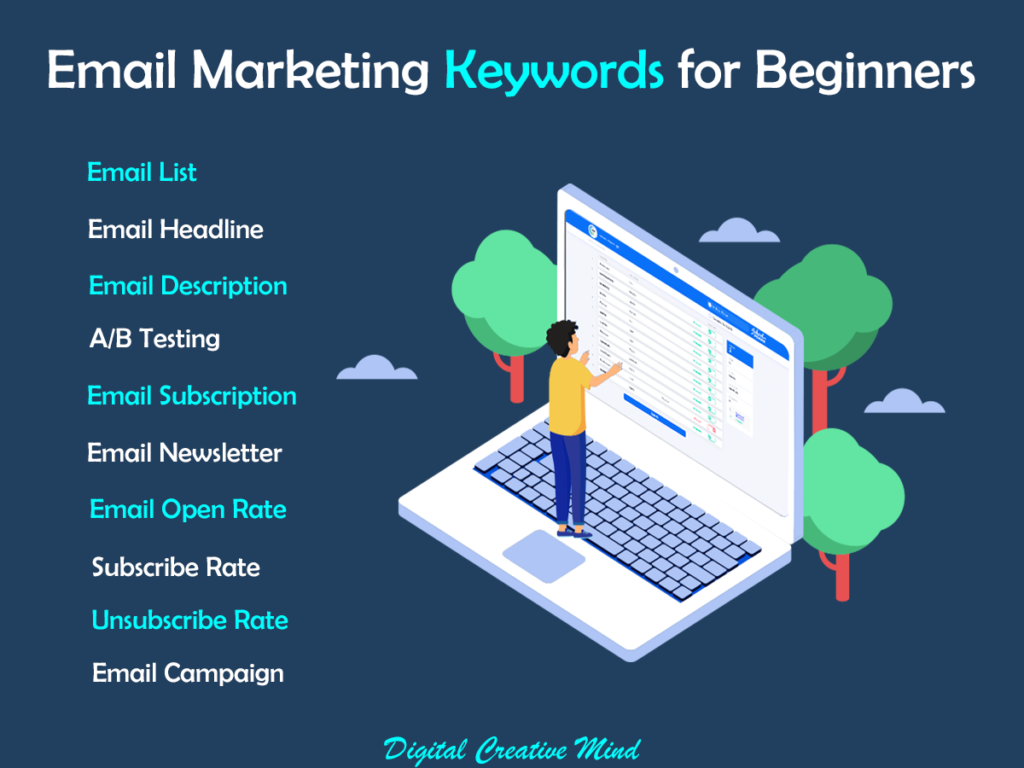
Copywriting: Copy is written content used in websites, ads, and promotional material. Copywriting helps you in attracting more visitors to the ads and persuade them to buy your products and services.
The process of writing copy for the ads, website, and promotional material is Copywriting. It helps to prepare useful content for your business and to increase sales and revenue.
SlideShare: SlideShare is a content publishing platform for presentations, documents PDF files, Infographics, and videos. It is a professional network for sharing content with the public.
Email Marketing: Email Marketing is the practice of using emails for the marketing and promotion of your product, service, and business. Email Marketing helps you to share your message in the form of a well-written email.
Growth Hacking: Growth Hacking means a marketing strategy focused on maximum growth with minimum cost. It is also called Growth Hacking Marketing and Growth Marketing. The objective of Growth Hacking is to acquire more and more customers or users at a low cost.
Mobile Marketing: Mobile Marketing is a marketing technique in which marketers reach potential customers through their smartphones, feature phones, and tablets. Marketers use different methods – emails, SMS, or social media, to connect with the customers.
Mobile Marketing is very effective because people use their smartphones more than any other gadget and carry their smartphones everywhere they go.
Viral Marketing: Viral Marketing is a form of marketing strategy to promote your business, product, or service by making your content viral on social media. The viral content could be your Posts, Infographics, or Videos.
The purpose of Viral Marketing is to create viral content and to attract potential customers to your business. It helps you boost your brand awareness among your target audience interested in your product.
Conversion Rate Optimization: Conversion Rate Optimization means the optimization of the process to increase the number of website visitors who take your desired action on your website. It helps you to get more conversions with the same amount of traffic.
Influencer Marketing: Influencer Marketing is a form of marketing in which we take the help of social media influencers to promote our business, product, and services.
An influencer could be an expert in a niche with a large social media following on social media platforms like Facebook, Twitter, Instagram, or YouTube.
It is an effective way of marketing through influencers’ recommendation and promotion on social media because influencers’ recommendation is like social proof for your audience.
E-Commerce Marketing: eCommerce Marketing is the process of marketing and promotion of an online selling platform that sells products and services to its target audience.
It includes creating awareness about the brand, attracting new customers, and preparing a sales funnel to encourage sales.
WordPress: WordPress is an open-source and free content management system that helps you to create a new website with easy customization and multiple plugins that makes your work very easy.
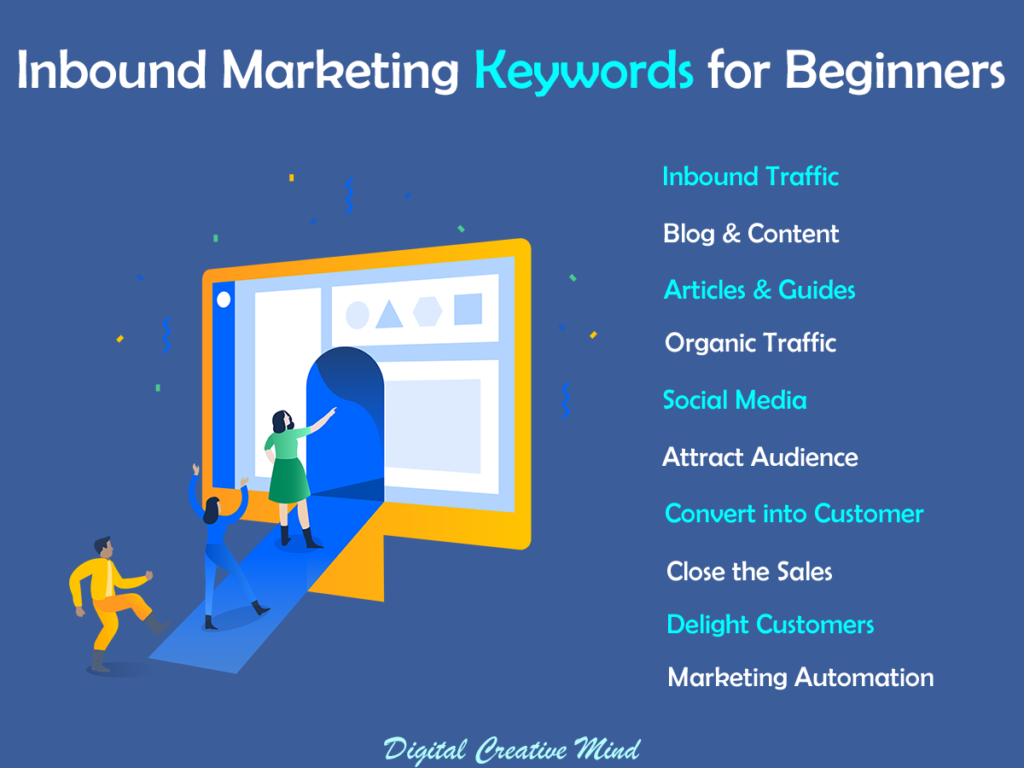
Freelance: Freelance is a means a person working as self-employed and does not have any particular commitment for the employer. A freelancer works with complete autonomy and freedom.
Niche: Niche is a small and specific segment of the market which has its unique needs, wants, and demand of products and services.
Search Query: Search Query means the character and phrase used by a searcher to search a specific topic or idea on the search engine.
Podcast: Podcast is a digital audio content file or series of files that share information about a specific topic. It facilitates users to get high-quality audio content freely available on the internet. It is very effective for brand promotion.
Final Words:
These were the top most important Digital Marketing keywords that beginners should know. It will help you to develop a basic understanding of not only Digital Marketing, however other major Digital Marketing concepts like Marketing, Search Engine Optimization, SEM, and Social Media Marketing.


